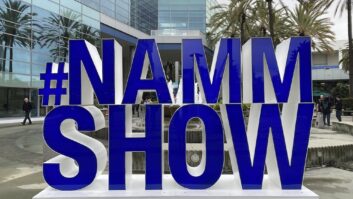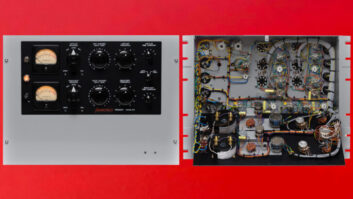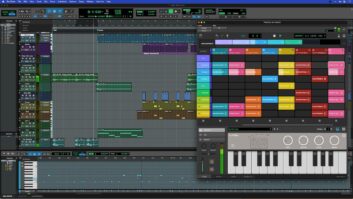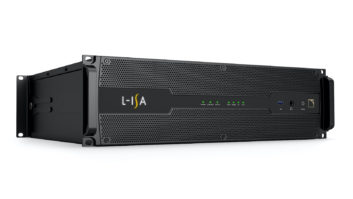Last month I wrote about new subscription/membership models that are now being offered by Avid, Slate Digital, Cakewalk and Audionamix. This month we’re going to dive into why a user would benefit from going monthly when buying their audio tools rather than an outright purchase. It’s a potentially complex set of variables based on the type of product, what you get in the deal, and if it makes sense for your personal workflow.
First lets cull the herd. Commercial studios that use a product every day, like Pro Tools, are most likely going to purchase outright. Keeping studio systems stable is paramount, and new features outside of their basic needs, like advanced MIDI editing or new virtual instruments, are of little interest. Systems tend to be “frozen” in time, outside of bug fixes, because upgrading to the latest OS may disable some plug-ins, or present other downtime-causing issues.
Some users may want to buy Pro Tools 12 on subscription for cloud collaboration across projects. But this way of working hasn’t caught on in the past—Xonami offered a cross-platform solution similar to this in 2010 and it never flew. And I’m not so sure a file upload via Hightail, Dropbox or Apple’s Mail Drop is a more realistic way to work. You can send a large project (up to 5 GB in Mail Drop) to another user. They can work on it, send you their files for import to your session and you’re done. It’s not as elegant as never having to leave the DAW, but then again, it’s not running active in the background, which can bog a system down.
I’m guessing a facility that doesn’t use Pro Tools as its primary DAW could benefit. It could ramp up a number of seats for a particular project, and then after it’s completed, reduce the active seats using a combination of perpetual and subscriptions licenses. Likely first adopters would be post-production facilities and/or crews, whether for a feature film or a complex game with lots of moving parts.
This decision to purchase outright may change when considering a bevy of popular plug-ins like Slate’s range of processors. Studios trying to be the one-stop shop for producers, mixers and self-mastering clients, or those with personal systems wanting fresh new toys, would benefit from an impressive array of goodies that are automatically updated. If Slate releases a new processor tomorrow, you could have it right away without shelling out extra $. The key word here—if—is important because users become wary once they’ve been down the path of broken promises and delayed updates and releases.
Audionamix offers its top spectral editing software apps, ADX Trax ($299), and the more able ADX Trax Pro ($499) as a direct purchase or for $19.99 or $29.99 per month, respectively. The company is fairly new, its software not established so the monthly plan would be a great way to have it around to compare to Sony SpectraLayers Pro 3 ($399 purchase only), or other post/forensic oriented products in your bag of tricks. For $30, you could purchase a 30-day trial, then buy or stay opted in as long as you wanted.
Personally, I think the subscription model is a fit for just a few companies that can afford to offer it. Avid is the 800-pound gorilla and it can do what it wants. The company’s push for collaboration is a good thing, and its control over its chunk of the cloud would presumably alleviate security concerns. Slate’s deal seems to be the best match for the purchase model—that is, if the company offers new products and upgrades in a timely manner. Cakewalk is a different matter. Users new to the game wanting to try and compare before they buy and not worry about timing out could become a short-term “member”—different than the old 30-day trial in that if you’re hooked, you can continue to subscribe or purchase outright.
Logic is the finger in the industry’s eye at $199. No one can compete with that price vs. feature set. It makes the Apple app a no-brainer and possibly a deal breaker when posed against higher-priced products. Logic Pro will never go subscription at that price. Apple’s upgrades to the popular app are spotty at best. Historically, it’s taken between two to three years to jump to the next version of Logic Pro as Apple likes to tilt resources to other products such as iPhone, iWatch, iCar, or who knows what.
There may be a couple of players who are missing the boat here. Although the company doesn’t offer it, I could see pricier software like Magix Sequoia ($2,975), or Steinberg Nuendo ($1,700) bringing in new users with this model. Sequoia offers a great range of features for the PC user that are not found anywhere else, but the price leaves out users who don’t have that kind of money upfront, especially the young, new music maker with limited funds.
So where does that leave you? What kind of user are you? I’m sure there are pockets of users I’ve missed, so please chime in on Mix’s Facebook page if you want to continue the debate.







